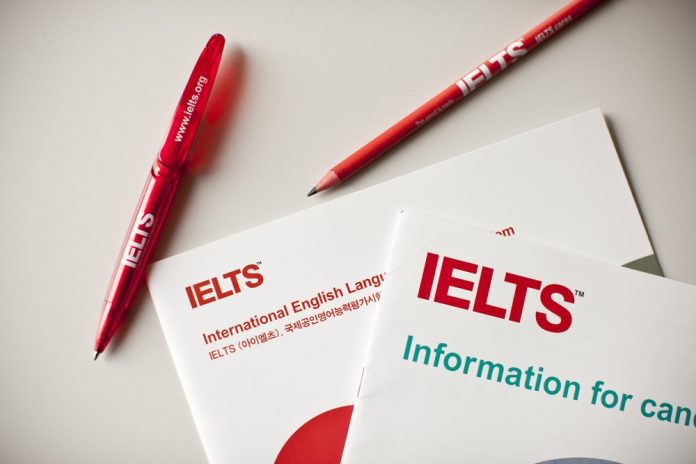The IELTS or the International English Language Testing System is a language exam that overseas applicants must take if they want to study or work in a country where English is the major language of communication. The most common countries where the IELTS exam 2022 score is accepted for university and job applications are the United Kingdom, Australia, New Zealand, the United States, and Canada.
The exam focuses on the test taker’s ability to communicate in four fundamental English language abilities: listening, reading, speaking, and writing. The IELTS test is owned and administered jointly by IDP Education Australia and Cambridge English Language Assessment.
Why is IELTS Exam Required?
IELTS is required to prove English competency for studying, migration, or employment in English-speaking countries that require practical communication skills. More than 11,000 employers, institutions, and government immigration organizations worldwide recognize IELTS scores.
Some of the advantages of taking the IELTS exam are as follows:
- Access to worldwide job opportunities,
- International study programs and higher education,
- Permanent residency and immigration.
Types of IELTS Exam
The IELTS exam can be divided into two types, i.e., IELTS Academic and IELTS General Training. While the structure of both the exams does not differ greatly, their purpose does. The table below draws a comparison between the two:
| Parameter | IELTS Academic Test | IELTS General Training Test |
| Acceptance | Students who wish to pursue their education abroad choose this exam. | Those who want to move to major English-speaking countries such as the US, UK, Canada, Australia, and New Zealand choose this exam. |
| Purpose | It is required for entry into a professional school or college. | Admission to a secondary institution, such as a high school, may need it. Individuals seeking employment in another country may also take this test. |
| Questions Asked | The questions are based on the university level. | The questions are based on broad subjects of interest. |
IELTS Exam Eligibility
There are no strict eligibility requirements for the IELTS exam. Candidates who want to demonstrate their English language ability for any reason might take the IELTS exam. It is not, however, suggested for students under the age of 16. Furthermore, individuals of any age, nationality, or ethnicity can take the IELTS. In the table below, a few IELTS eligibility criteria are listed:
| Criterion | Description |
| Minimum Age Required | 16 |
| IELTS Eligible Countries | UK, USA, Canada, New Zealand, and Australia |
| ID Proof | Valid Passport |
| Number of Attempts | Unlimited |
IELTS Registration
The following are the steps for IELTS exam registration, including online and offline:
IELTS Online Registration
IELTS registration is now simple and quick. The IELTS test can be booked in three phases. Candidates must first visit the official IELTS website and then:
Step 1: Create an account.
Step 2: Determine a suitable date slot based on availability at the local IELTS testing centers.
Step 3: Pay for registration online to complete it.
IELTS Offline Registration
Candidates must obtain the IELTS exam registration form from the official website. Manually select the test date and fill out the other form criteria. The candidate must then pay by demand draft (written in favor of “IDP EDUCATION INDIA PRIVATE LIMITED, Payable at New Delhi”) or cash. On the registration form, the candidate must offer a Blue Dart courier operable address.
IELTS Exam Fee
The following table will give a holistic view of the different types of IELTS exam fees for aspirants:
| IELTS Exam Fees | Amount in INR |
| Computer-delivered IELTS | 15,500 |
| Pen and Paper Based IELTS | 15,500 |
| IELTS Life Skills (A1 and B1) | 14,600 |
| IELTS UK Visas and Immigration | 15,750 |
| Computer Delivered IELTS for UKVI | 15,750 |
| IELTS Cancellation | 25% of the test fee |
| IELTS Rescheduling | 3,312 |
IELTS Exam Syllabus and Pattern
Candidates who want to perform well on the IELTS should thoroughly understand the IELTS exam syllabus. The four components of the IELTS and the overall IELTS score are used to grade students. The final score is calculated by adding the points from the four skill areas. The IELTS exam lasts for 2 hours and 45 minutes in total.
The IELTS exam pattern table below will provide students with a high-level overview of all sections:
| IELTS Exam Module | Time Duration in Minutes | Brief Description |
| Listening | 30 | 4 sections, 40 questions |
| Writing | 60 | 2 Writing tasks |
| Speaking | 11-14 | 3 part one-on-one conversation |
| Reading | 60 | 3 sections, 40 questions |
IELTS Score and Results
IELTS results are intended to be simply understood by everyone. As the conducting body collected data from test takers and examined it, candidates scored the highest in listening and the lowest in writing, regardless of gender. IELTS band scores are assigned on a scale of 1 to 9 as mentioned below:
| Band Score | Skill Level |
| 9 | Expert user |
| 8 | Very good user |
| 7 | Good user |
| 6 | Competent user |
| 5 | Modest user |
| 4 | Limited user |
| 3 | Extremely limited user |
| 2 | Intermittent user |
| 1 | Non-user |
Taking the IELTS exam opens up a world of opportunities! Over 11,000 organizations in 140 countries accept the IELTS exam, with over 3 million IELTS exams taken each year. Although the exam may allow one to apply to universities in native English-speaking countries, only having a clear idea of the exam format and test-prep strategies can help them stand out.



































